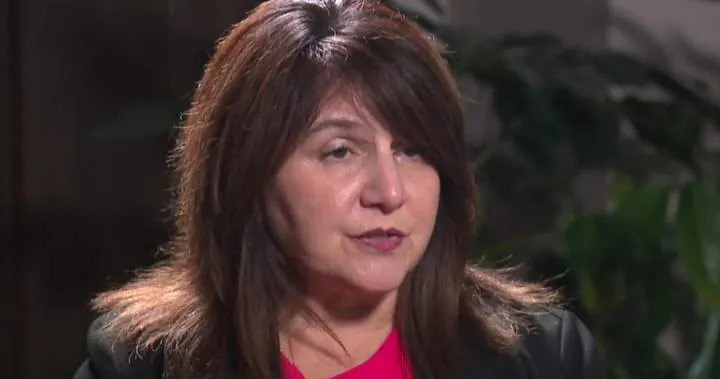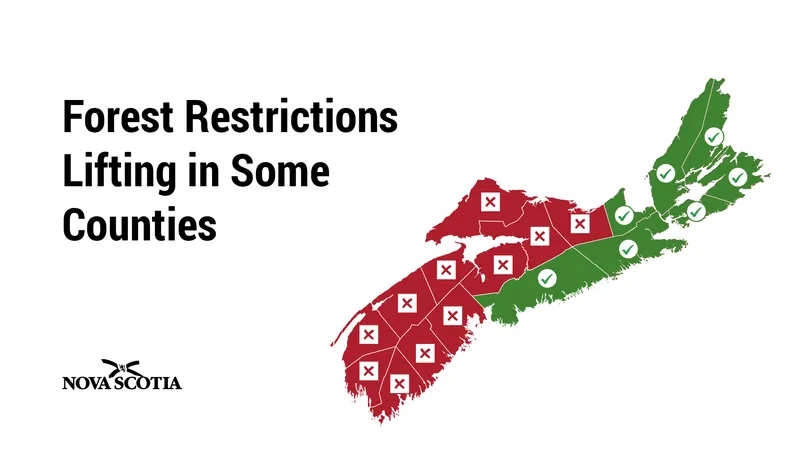
Alberta's COVID Vaccine Payment Policy Sparks Outrage: Minister Defends Controversial Moves
2025-09-08
Author: Benjamin
Major Change in Alberta's Vaccine Policy
In a recent interview with Global News, Alberta's Minister of Primary and Preventative Health Services, Adriana LaGrange, faced extensive scrutiny over the province's new policy regarding COVID-19 vaccinations. Under the controversial plan introduced in June, many Albertans now must pay $100 to receive their vaccine, a change that has drawn sharp criticism from experts and the public alike.
Federal Funding Cuts Lead to Charges
LaGrange explained that this year marks the first time the federal government has not funded the vaccine program since its inception four years ago. She cited wastage as a primary concern, revealing that $44 million worth of vaccine was discarded last year alone. *"We can’t afford to waste vaccine or its associated costs,"* LaGrange asserted.
Declining Vaccination Rates Raise Alarm
Despite ordering approximately 500,000 doses—slightly fewer than previous years—vaccine uptake in Alberta has declined significantly from 17% two years ago to just 13% last year. This drop in interest has led the province to restrict vaccine eligibility further.
Pharmacists Left Out of the Equation
In a surprising turn, the Alberta government decided to exclude pharmacists from administering the vaccine, pivoting to a centralized booking system. LaGrange claimed that pharmacies contributed to vaccine wastage, particularly with multi-dose vials expiring before use.
Expert Criticism: 'Chaotic' and 'Unfair'
However, Dr. James Talbot, a former chief medical officer of health in Alberta, lambasted these changes as *"chaotic"* and *"grossly unfair."* He pointed out that this year's doses are single-use, significantly diminishing wastage risks. *"It’s disingenuous to restrict access when the reasons for wastage have vanished,"* Dr. Talbot stated.
Political Motivations or Evidence-Based Decisions?
When questioned about possible political motives behind the changes, LaGrange reiterated that the province is aligning with recommendations from the National Advisory Committee on Immunization (NACI). Yet, Dr. Talbot contended that her interpretation of NACI’s guidelines is flawed, arguing that they selectively apply their recommendations to justify their decisions.
Health Canada's Standpoint on NACI Recommendations
Global News also sought insights from Health Canada regarding NACI's role. The agency emphasized that while it identifies higher-risk groups for infection, the ultimate decision-making power regarding vaccination policies rests with provincial governments. They reiterated that NACI's guidance is merely advisory.
Deadlines and Personal Choices
Albertans are encouraged to pre-order their vaccines by September 30. Those who pre-order will be reminded to schedule their appointments in early October, though vaccines will still be available while supplies last. Interestingly, when asked if she would be getting the vaccine this fall, Minister LaGrange stated she would not, highlighting the idea of vaccination as a personal choice.
As Alberta navigates the complexities of this significant policy shift, many are left debating the ethics and implications of charging for vaccines that once were considered essential public health measures.









 Brasil (PT)
Brasil (PT)
 Canada (EN)
Canada (EN)
 Chile (ES)
Chile (ES)
 Česko (CS)
Česko (CS)
 대한민국 (KO)
대한민국 (KO)
 España (ES)
España (ES)
 France (FR)
France (FR)
 Hong Kong (EN)
Hong Kong (EN)
 Italia (IT)
Italia (IT)
 日本 (JA)
日本 (JA)
 Magyarország (HU)
Magyarország (HU)
 Norge (NO)
Norge (NO)
 Polska (PL)
Polska (PL)
 Schweiz (DE)
Schweiz (DE)
 Singapore (EN)
Singapore (EN)
 Sverige (SV)
Sverige (SV)
 Suomi (FI)
Suomi (FI)
 Türkiye (TR)
Türkiye (TR)
 الإمارات العربية المتحدة (AR)
الإمارات العربية المتحدة (AR)